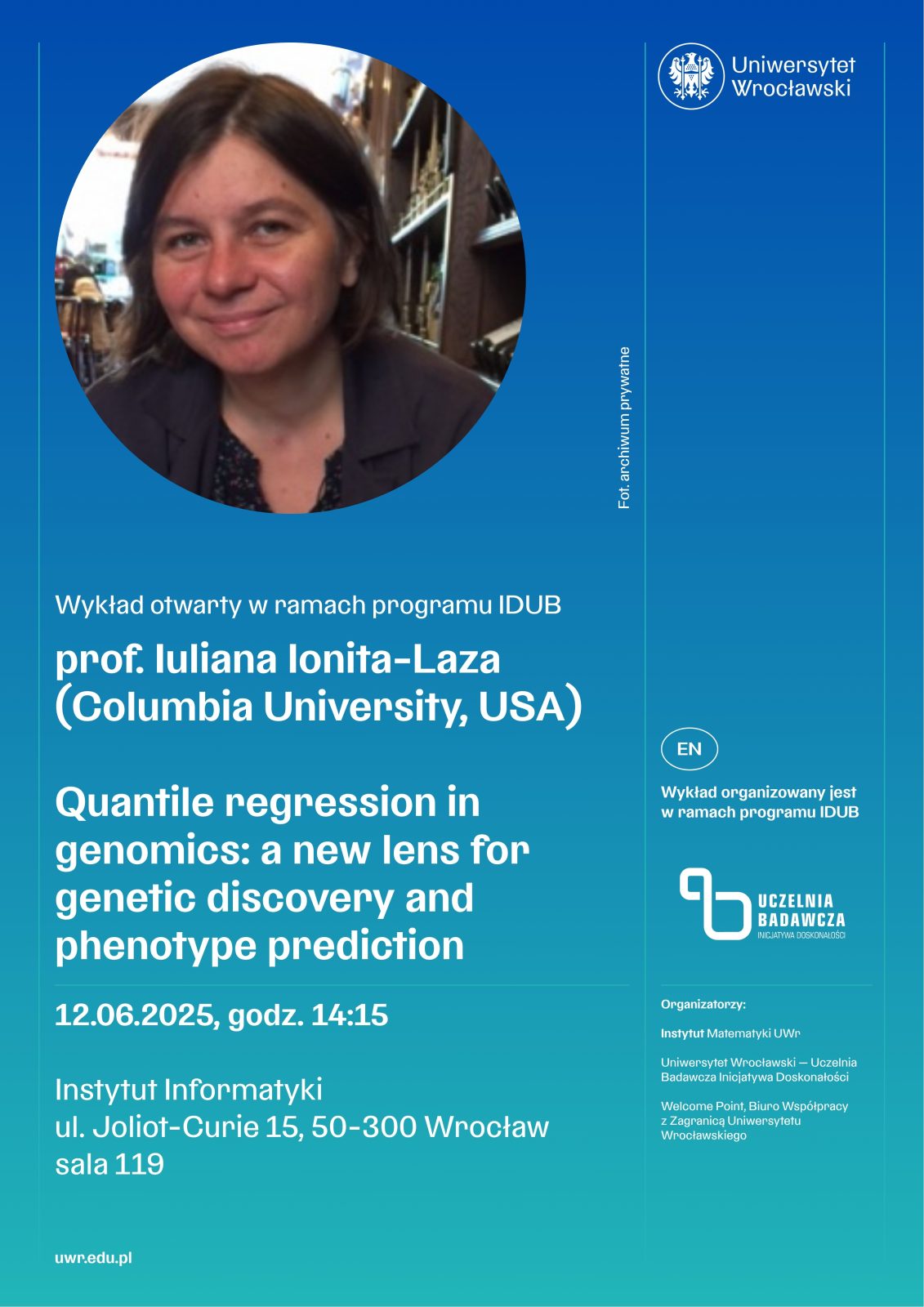
Prof. Iuliana Ionita-Laza visits the University of Wrocław
On 12 June, the Institute of Mathematics at the University of Wrocław will host Prof. Iuliana Ionita-Laza from the Mailman School of Public Health at Columbia University (USA). The visit is part of the IDUB Visiting Professors programme – short visits.
Prof. Ionita-Laza will give a lecture entitled ‘Quantile regression in genomics: a new lens for genetic discovery and phenotype prediction’.
The lecture will take place at 2:15 p.m. in room 119 of the Institute of Computer Science at the University of Wrocław at ul. Joliot-Curie 15.
We cordially invite all interested parties to attend!
Lecture abstract
Genome-wide association studies (GWAS) have been instrumental in uncovering genetic links to biomarkers and molecular traits that are relevant to health and disease. However, many genetic effects vary across individuals and contexts—they may be stronger in some subgroups and weaker or absent in others. Despite this, most GWAS still rely on methods that assume uniform effects across the entire population.
This talk introduces quantile regression as a flexible alternative to traditional approaches. Unlike standard models that focus only on average effects, quantile regression examines how genetic variants influence different parts of the outcome distribution. This makes it possible to detect associations that are especially relevant for high-risk individuals, even if they have little impact on the average outcome. The method also helps account for subtle differences in genetic background across individuals.
Quantile regression is also applied to improve genetic risk prediction. Standard polygenic risk scores estimate the expected value of a trait based on genetic data. In contrast, quantile regression allows for prediction of the full conditional distribution of the trait, offering a more nuanced view of individual risk. When used together with conformal prediction methods, this approach can provide valid prediction intervals—ranges where a person’s trait value is likely to fall with high probability. Applications to real data on biomarkers and molecular traits will illustrate these ideas.
Bio
Professor Ionita-Laza conducts research at the intersection of statistics and genomics. Her primary interests lie in developing statistical and machine learning methods for the analysis of high-dimensional genomic data. She also focuses on the application of these methods to studies of the genetic basis of complex diseases and traits, such as autism spectrum disorders, schizophrenia, and Alzheimer’s disease.
She serves as Co-Director of the Career MODE programme – an NIH-funded mentoring initiative for early-career researchers in the biomedical sciences. She also leads the Genomics@Columbia initiative, which aims to bring together an interdisciplinary group of researchers from across Columbia University with expertise in statistical and computational genomics, other omics fields, computational biology, and biomedical informatics, all united by an interest in advancing knowledge of human biology and health. Her research is funded by the NSF and NIH, and her findings are published in leading scientific journals, including Nature Genetics, Proceedings of the National Academy of Sciences, and the Journal of the American Statistical Association.

Date of publication: 4.06.2025
Added by: M.K.



